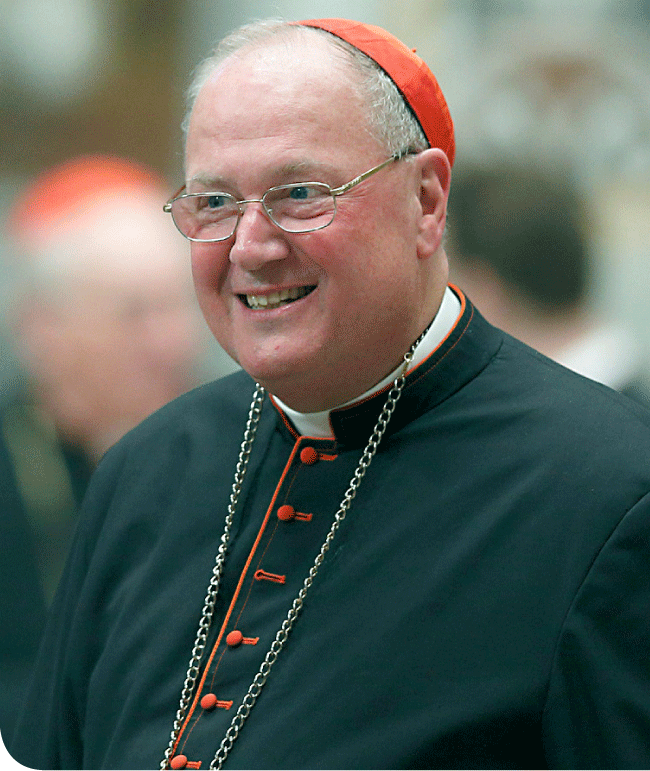President Obama’s proposed revisions to an HHS regulation requiring health insurance plans to cover contraception, abortifacient, and sterilization procedures has met none of the objections of Catholic, Evangelical, Jewish, and Muslim leaders, and in some respects even made matters worse. A committee of Catholic bishops (headed by Cardinal Timothy Dolan) responded with a strongly worded critique. Meanwhile, over 170 bishops publicly decried the HHS rule, and a coalition of Catholics and Evangelicals has issued a joint call for protection of religious liberty.
The administration underestimated the breadth of this reaction. The palpably superficial, even presumptuous character of their proposed revisions merely underscored their deep commitment to regulation by administrative fiat. The HHS rule, clearly, was not an aberration by bumbling bureaucrats. It is the cutting edge of a wide-ranging agenda that seeks to empower politically unaccountable, self-styled “experts.” The recently enacted health care law is only the most sweeping and potent expression of this disposition.
When it comes to women’s health, the president’s agenda is essentially one with Planned Parenthood’s, backed by government force. In Obamaspeak, “health” means the full array of new found women’s “reproductive rights,” including mandatory insurance coverage. HHS Secretary Sebelius is the most visible official advancing this agenda, but she has the support of many other senior White House and agency officials, including the EEOC, which says that employers who fail to provide insurance coverage for morally objectionable services may be violating their employees’ civil rights.
This reproductive rights program dovetails with a broader political strategy that seeks to narrow the scope of religious activity in the public square, qualified by this distinction: religious opinion that supports the president’s programs is to be encouraged; but religion that takes exception to his policies is intrusive. If the recent HHS controversy did nothing else, it should have alerted Catholic bishops to the full extent and gravity of the administration’s efforts to silence religious opposition. Even if the bishops succeed in whittling back the HHS rule (an unlikely event), they should not delude themselves that the battle is over. In truth, it has only begun.
What, then, should the bishops do in the weeks and months ahead? Six things:
(1) They must make every effort to control the terms of debate. The president will continue to say, disingenuously, that HHS is only trying to protect the right to use contraceptives. The public reacted favorably when the bishops focused instead on the threat of government coercion, but that favor will quickly evaporate unless the bishops deploy their strongest weapon, which is, and always has been, the people in the pews. Most Catholics will side with the president on contraceptive use, but if the bishops cannot rally them to oppose Obama’s brazen assault against religious liberty, the HHS rule will be the least of their worries.

(2) The people in the pews, however, will remain passive if all they have are formal statements or church bulletin inserts. They must be instructed and exhorted to act, not merely as Catholics, but as Americans who take their First Amendment liberties seriously. Many bishops today have no experience in fighting battles of this sort, and some will refuse to do so. But those who are willing can learn. Virtually every diocese has hundreds, if not thousands, of laypeople experienced in the political arts, who can render useful advice. The bishops need not, and should not, do all the heavy lifting; but they can, and should, instruct, inspire, and lead.
(3) The USCCB leadership should be wary about getting drawn into extended negotiations over the administration’s proposed revisions. They need to move the argument beyond obtaining an exemption for church-related institutions, which may end up being so narrowly defined as to be useless. Besides, an exemption strategy may prove counter-productive in the long run by conceding that the government is constitutionally empowered to grant or withhold religious privileges. The only safe negotiating position is to make clear from the get-go that the HHS rule must be withdrawn. Only then can good-faith negotiations begin.
(4) The bishops also need to distance themselves from the “seamless garment” rationale that has animated many Catholics since the 1970s. The principal effect of that rationale has been to give Catholic politicians a free ride when they support pro-abortion measures. It is beyond scandal that so many prominent office-holders have been allowed to avert their gaze from the rights of unborn children. Just how many politicians like John Kerry, Nancy Pelosi, Joe Biden, and Kathleen Sebelius do the bishops wish to tolerate? It is time to say good-bye to all that, and deep-sixing the “seamless garment” argument is the place to start.
(5) More broadly, the bishops need to re-address their long-standing support for “universal” health care. Many well-meaning prelates seem not to understand that once universal coverage is mandated, the government is necessarily empowered to decide what services are covered, for whom, and how. Unless they rethink health care reform from top to bottom, the bishops will be fighting morally obnoxious regulations for the rest of time, with little prospect of success. Alternative reform proposals (there are many) deserve the bishops’ most serious moral consideration. It is time, in short, for the bishops to move beyond feel-good slogans.
(6) Finally, the bishops should not rely solely on the courts. Litigation is essential, but this battle must be, and in any event will be, fought in the political arena. It is not a battle of the bishops’ choosing, but they’re in it nevertheless. The Obama administration seems to believe that its religious opponents lack the courage or the resources to resist.
It is time for the bishops to prove them wrong.















